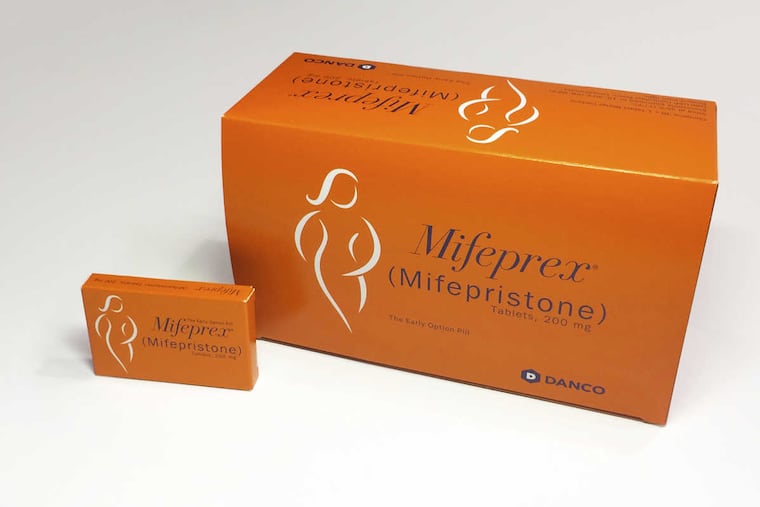Doctors urge FDA to loosen restrictions on abortion pill

A group of reproductive health experts has called on the U.S. Food and Drug Administration to loosen regulation of the "abortion pill" so women can get it by prescription in pharmacies without necessarily seeing a doctor.
The commentary, in Thursday's New England Journal of Medicine, comes as the Trump administration, which has been hostile to abortion rights, prepares to appoint a new FDA commissioner.
The FDA last year updated the prescribing information for the abortion pill, mifepristone, marketed as Mifeprex, to let women use it later in pregnancy, with two visits to the doctor rather than three. But special restrictions still prohibit the sale of the drug in pharmacies; it can only be dispensed in clinics, hospitals, and medical offices by health-care providers who undergo a certification process.
"We'd like to see Mifeprex be available in pharmacies like other drugs with a similar safety profile," said Princeton University public health researcher Kelly Cleland, who joined nine co-authors from academic medical centers and advocacy organizations.
If an ultrasound is needed to confirm that the patient is no more than 10 weeks pregnant, she could get the scan in a nearby radiology center, without an in-person visit to the mifepristone prescriber, Cleland said.
"We trust women and providers to make safe decisions for themselves," she said.
Medication abortion actually involves two drugs. Currently, the standard regimen is for the woman to take the mifepristone pill at the clinic. It blocks a hormone needed to sustain a pregnancy. Up to 48 hours later at home, she takes misoprostol, which causes uterine contractions and expulsion of the grape-size fetus.
The prescribing information says women should go back to the doctor a week or two later to confirm the pregnancy termination, but Cleland said "most women don't need to go back."
The commentary says that in the 16 years since mifepristone was approved, 19 deaths have been reported to the FDA among the more than three million women who have used mifepristone, a death rate of 0.0006 percent. That makes the chance of a fatal problem far less than with pregnancy — and less than the estimated 0.004 percent death rate of erectile dysfunction drugs.
Federal data show that mifepristone has accelerated the shift toward early pregnancy terminations, when it is safest and has the greatest public acceptance; medication abortion accounted for about 45 percent of terminations up to 9 weeks in 2014.
However, mifepristone has done little to make abortion more accessible or part of private medical practices. Only about 7 percent of sales in 2014 were to private physicians, according to Danco, the manufacture.
The commentary contends that eliminating the special restrictions would boost that percentage, since doctors would no longer have to stock the drug and be on a list of certified abortion providers.
Doctors' reluctance to be on that list is "understandable, given the long history of harassment and violence" toward providers, the commentary says.
Anti-abortion activists have opposed easing abortion-pill regulations. In some states, notably Texas, they successfully pushed for laws that required doctors to stick to the outmoded prescribing regimen originally proposed by Danco and approved by the FDA. Research showing that a simpler, lower-dose regimen was safe and effective through 10 weeks of pregnancy led to the agency's updated prescribing regimen.
As is its policy, the FDA declined to comment on the opinion piece.